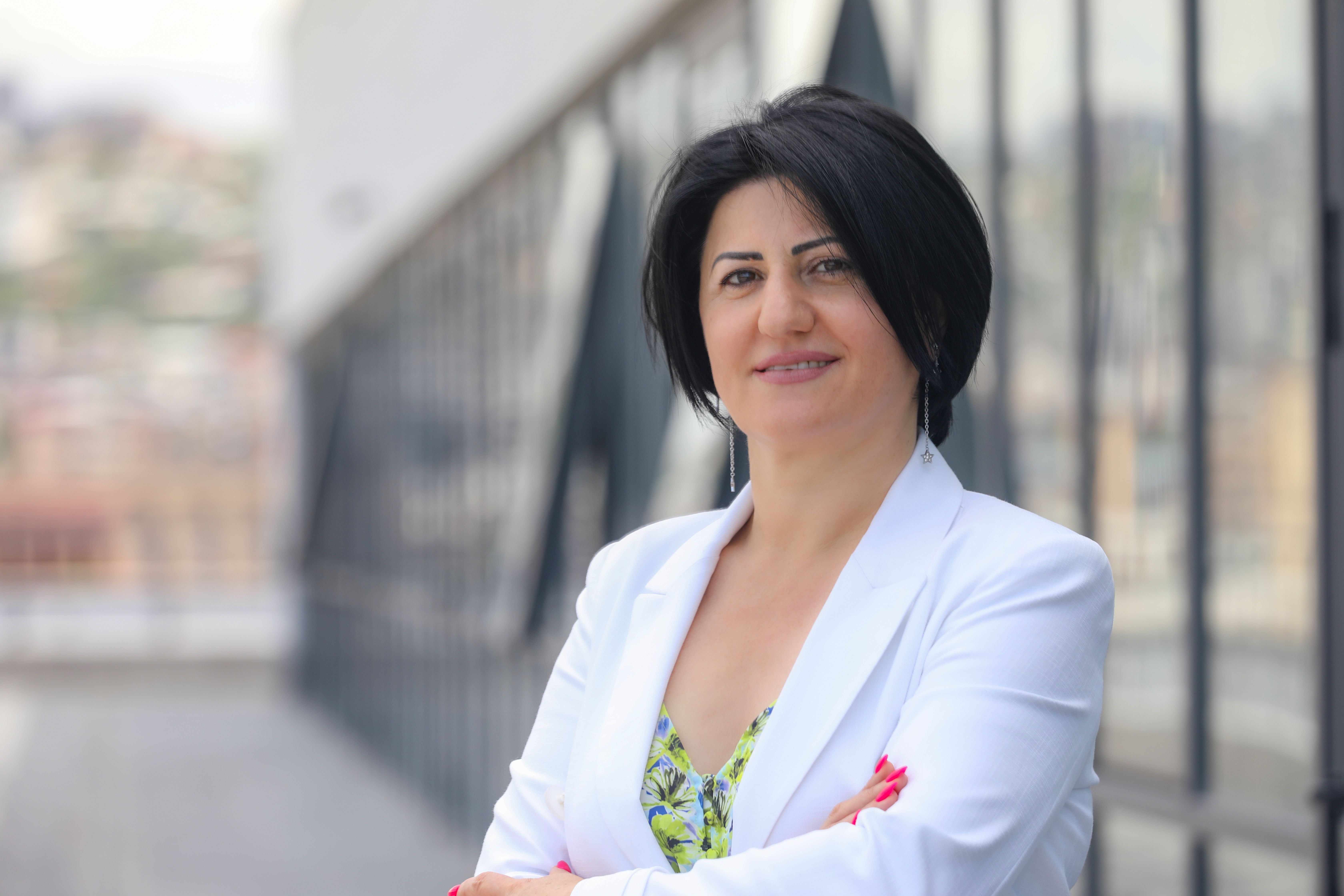Expert Insight: Lusine Manucharyan on Responsible Metals, Biodiversity, and Climate Leadership
)
 We spoke with Lusine Manucharyan, Senior Advisor on Climate Change and Sustainability at Zangezur Copper Molybdenum Combine (ZCMC), about how mining can power the clean energy transition without creating new environmental or social risks. She shares insights on combating greenwashing, advancing biodiversity protection ahead of Armenia’s COP17, and ensuring the sector has a credible voice in shaping international climate policy. From responsible sourcing to transparent ESG reporting, Lusine outlines how heavy industry can be a genuine solution-provider in a just and sustainable transition.
We spoke with Lusine Manucharyan, Senior Advisor on Climate Change and Sustainability at Zangezur Copper Molybdenum Combine (ZCMC), about how mining can power the clean energy transition without creating new environmental or social risks. She shares insights on combating greenwashing, advancing biodiversity protection ahead of Armenia’s COP17, and ensuring the sector has a credible voice in shaping international climate policy. From responsible sourcing to transparent ESG reporting, Lusine outlines how heavy industry can be a genuine solution-provider in a just and sustainable transition.
Lusine will be at the upcoming Sustainability Delivery Summit London, joining the panel Greening Heavy Industry: Achieving Decarbonisation Goals Through Innovation and Collaboration.
EA: Given the critical role of metals in clean energy and climate technologies, how can mining companies extract and supply these resources to support climate mitigation and adaptation without causing new environmental or social risks?
LM: To achieve this, mining companies must source critical metals in a climate-resilient and socially responsible manner. This involves conducting thorough life cycle assessments, committing to transparent and responsible sourcing practices, and embedding climate adaptation strategies into their operations. Our conference, Responsible Miners, Responsible Investors, is dedicated to advancing these principles—ensuring mining supports the energy transition while preventing new environmental or social harms.
EA: A key focus of your conference is the prevention of greenwashing and the promotion of transparent sustainability reporting, including frameworks like TNFD. How can heavy industries and investors work together to build accountability and public trust through credible reporting and disclosure?
LM: Greenwashing erodes trust and stalls progress. That’s why our focus is on credible, standardized reporting, including TNFD and similar frameworks. We promote training and collaboration so that both companies and investors can speak the same language of sustainability. Together, they must ensure ESG data is verified, transparent, and used to make responsible, long-term decisions. Accountability builds public trust and investment confidence.
EA: With COP 17 on Biodiversity being hosted in Armenia in 2026, what should be the role of heavy industry in protecting ecosystems and promoting biodiversity, particularly in resource-rich but ecologically sensitive regions?
LM: Industry must move beyond mitigation to active ecosystem protection and restoration. Mining companies should conduct rigorous impact assessments, protect critical habitats, and invest in nature-positive solutions. With COP 17 in Armenia, we have an opportunity to lead by example, showing how resource development can be aligned with biodiversity goals. Industry can and must be part of the biodiversity solution, especially where impacts are most direct.
EA: Looking ahead to COP30 and beyond, how can mining companies and investors become more active in shaping international climate policy, ensuring the industry's contributions are both solution-oriented and accountable—especially in areas like innovation, finance, and biodiversity?
LM: The business sector must have a direct voice in shaping global climate and biodiversity policy—especially as mandatory sustainability systems like TNFD are under discussion. Companies and investors need to be actively involved in climate and biodiversity conferences like COP30 and COP 17, not just as regulated entities but as solution-providers. Through transparent reporting, responsible finance, and policy engagement, the industry can help design systems that are practical, credible, and impactful, ensuring accountability while driving real-world change.
EA: You advise ZCMC, a leading mining company in Armenia, where sustainability is viewed as a strategic advantage. How does this approach translate into concrete actions to decarbonize operations and build social trust in the sector?
LM: At ZCMC, sustainability is embedded in our strategy as a core value driver. We are advancing decarbonisation through targeted energy efficiency initiatives, expanding the use of renewable energy, and implementing cutting-edge waste and water management systems. Equally, we prioritise building social trust by engaging transparently with communities, creating local employment opportunities, supporting regional development projects, and strengthening local skills through targeted capacity-building programs. For us, sustainability goes beyond compliance—it’s about demonstrating leadership, upholding accountability, and delivering long-term value for both people and the planet.

